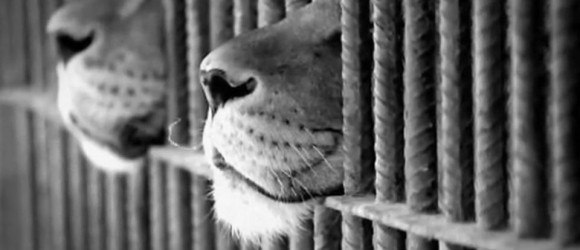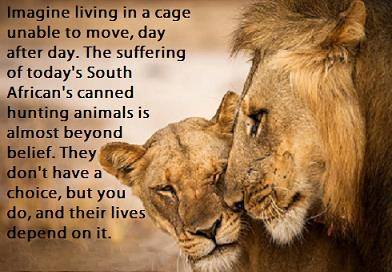Hunting – Profit Or Loss For South Africa
- At July 26, 2014
- By Rosemary Wright
- In Guest Writers
 6
6

Hunting – Profit Or Loss For South Africa
Hunting – Profit Or Loss For South Africa – The hunting protagonists would have you believe that hunting benefits South Africa by creating jobs and bringing in money.
Guest Writer
Chris Mercer Of CACH – South Africa
“In 2012, the income generated by trophy hunting from fees and daily rates was about R807 million”.
It astounds me how uncritically African governments accept that hunting is an economic and employment benefit to the country.
Would you be stupid enough to buy a company without seeing the whole Balance Sheet? Would you blindly accept the profits without taking losses into account?
The claim that hunters create jobs and income requires us to assume that all the hunting farms were vacant land before being used for hunting.
That is simply not true. All those ten thousand hunting farms in South Africa used to provide jobs for workers to produce crops and livestock. All those farms used to provide food for the nation. Now they produce living targets for the hunting industry.
Is this progress?
Let us take the wool industry for example:
We know that the amount of wool produced in South Africa over the last 20 years has declined by 50 000 000 kg. (Fifty million kilograms). Let’s break that figure down. Taking an average flock of a 1000 ewes, that means a loss of 12,500 farms. Notice how that correlates to the increase in game hunting farms to more than ten thousand. Each unit could give 4000 kg of wool a year and employ three workers.
So converting to game farming (hunting) has resulted in the loss of more than 37,000 jobs in the wool industry. Some of these would have gone to the game industry but not all – the skill set is different. Many of the so-called game or holiday farms do not have any employees and are only used for a weekend get away and for hunting. So the hunting industry has caused severe losses to the wool industry.
The loss of crop farms to hunting would be even greater in terms of food supply, upstream and downstream benefits to the agricultural economy – and to jobs for farm labour. The cattle industry has also suffered. The number of farmers on the land has declined drastically to about one third of the one and a half million farm workers who used to be employed.
Is this progress?
Is it not time for the Department of Agriculture to produce a proper Balance Sheet on hunting? Measure accurately the losses and expenses flowing from the change in land use, and then we can test the veracity of the extravagant claims on jobs and benefits made by hunters.
Livestock was, and is, subject to humane slaughter regulations, whereas hunting is a toxic industry whose whole business model is routine cruelty to helpless animals.
Is This Progress?





Follow – A BEATING HEART